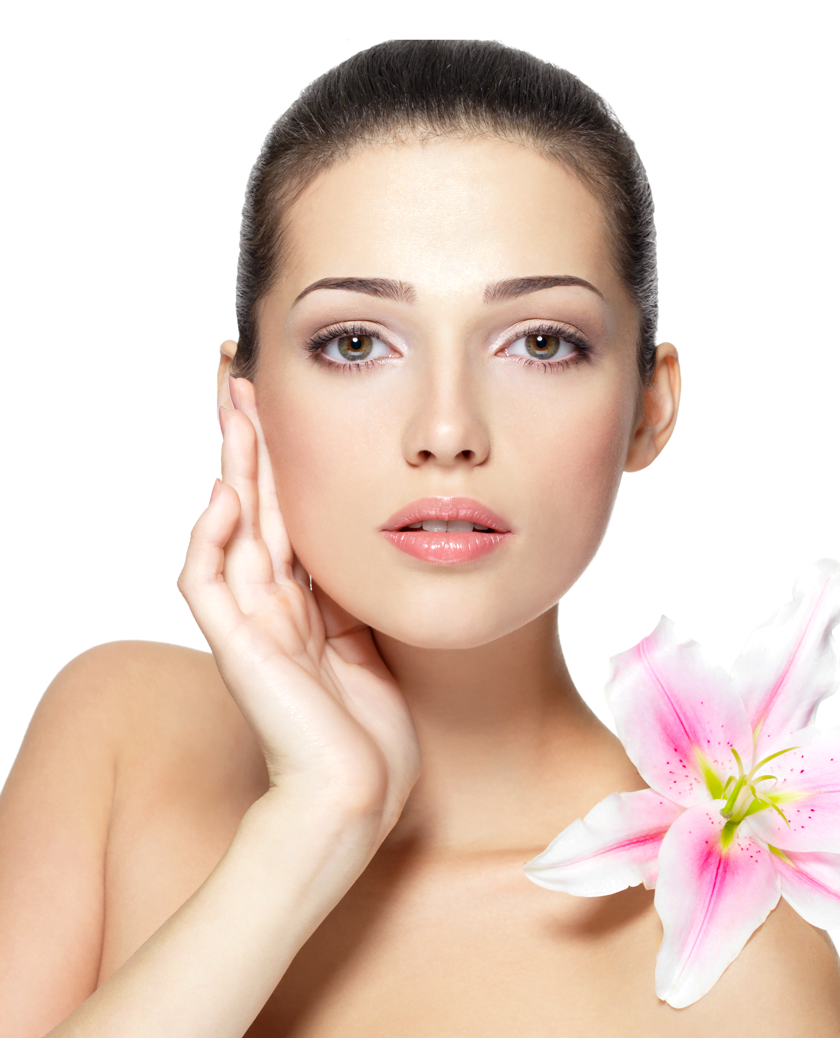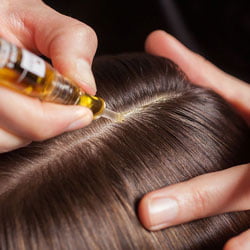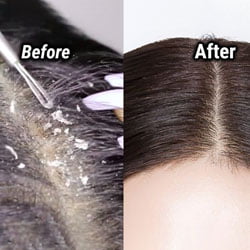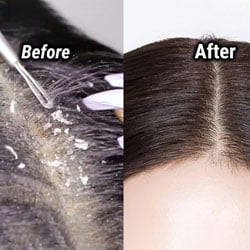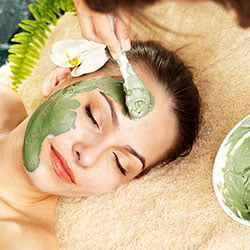- Trichology In Mumbai
- Scientific Combing In Mumbai
- Scalp Psoriasis In Mumbai
- Major Causes of Hair Fall In Mumbai
- Hair Fall And Alopecia Treatment In Mumbai
- Volumizing & Hair Regrowth Therapy In Mumbai
- Scalp Peel (Scalp Exfoliation Benefits) In Mumbai
- Low Level Laser Therapy Treatment In Mumbai
- Chemically Damaged Hair Treatment In Mumbai
- Dandruff Treatment In Mumbai
- Trichology Spa (Hair Spa) In Mumbai
- Hair Rejuvenation In Mumbai
Before & After
Before
After
Why Choose Neharkar ?
Swim In It
Dive into the pool or the sea without worry – our waterproof adhesive ensures your hair system stays firmly in place.
Exercise In It
Stay active and exercise confidently. Your hair system remains secure and undetectable during all physical activities.
Sleep In It
Enjoy uninterrupted sleep with your securely attached hair system. It stays in place throughout the night for your comfort.
Shower In It
Shower, Wash and care for your hair system just like natural hair. We recommend washing it once or twice a week for maintenance.
Sports In It
Whether you're playing sports or cycling, your hair system remains firmly in place, allowing you to enjoy your activities without concerns.
Cycling In it
Pedal confidently with your hair system, which will stay undetectable and secure during your cycling adventures.
CONTACT US
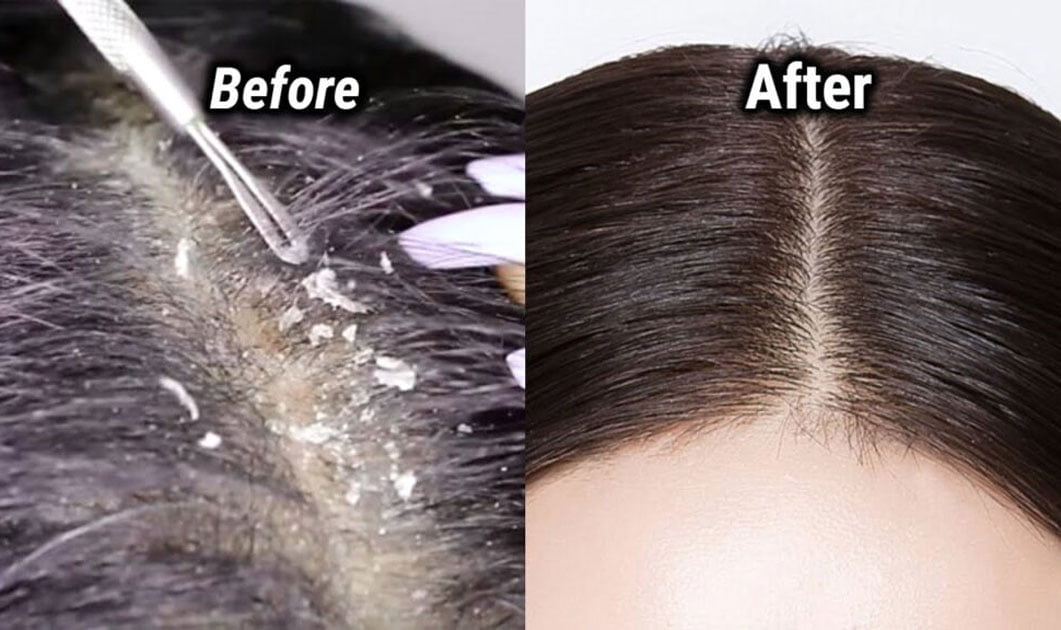
What is dandruff?
Dandruff is made up of small flakes of dead scalp skin. Normally our dead skin is continuously shedding from the scalp as well as other bodies. Dandruff occurs when the cells on the scalp are being shed more quickly than normal.
Dandruff Treatment
Is there a cure for dandruff?
As it is an exaggerated physiological process, dandruff can only be controlled, not cured.
Can dandruff cause you to go bald?
No, dandruff cannot cause someone to go bald. For years that was a common belief with dandruff but in reality, there is no correlation between dandruff and hair loss.
Why does winter seem to aggravate dandruff?
Cold weather during winter makes your skin drier than usual, which causes worsening of dandruff and an itchy scalp.
Overview
Dandruff is a common chronic scalp condition marked by flaking of the skin on your scalp. Dandruff isn’t contagious or serious. But it can be embarrassing and sometimes difficult to treat.
The good news is that dandruff usually can be controlled. Mild cases of dandruff may need nothing more than daily shampooing with a gentle cleanser. More-stubborn cases of dandruff often respond to medicated shampoos.
Diagnosis
Often your Hair & Skin Care Expert / Specialist can diagnose the problem simply by looking at your hair and scalp.
Our Hair Care Treatments:
We offer an exclusive range of advanced Hair care treatments, hand-picked by our Haircare specialists. What Are Different Types Of Hair Treatments?
Symptoms of dandruff
For most teens and adults, dandruff symptoms are easy to spot: white, oily-looking flakes of dead skin that dot your hair and shoulders, and a possibly itchy, scaly scalp. The condition may worsen during the fall and winter when indoor heating can contribute to dry skin, and improve during the summer.
Symptoms
White flakes on shoulders of dark
clothing
Itchy scalp
Scaly facial skin
A facial rash over eyebrows, nose, and ears
Oily scalp and facial skin with dry flakes
Eyebrow rash
Beard rash
Chest rash with dry flakes and red spots
Symptoms
White flakes on shoulders of dark
clothing
Itchy scalp
Scaly facial skin
A facial rash over eyebrows, nose, and ears
Oily scalp and facial skin with dry flakes
Eyebrow rash
Beard rash
Chest rash with dry flakes and red spots
Causes of dandruff
Dandruff can have several causes, including:
1. Irritated, oily skin (Seborrheic dermatitis)
2. This condition, one of the most frequent causes of dandruff, is marked by red, greasy skin covered with flaky white or yellow scales. Seborrheic dermatitis may affect your scalp and other areas rich in oil glands, such as your eyebrows, the sides of your nose and the backs of your ears, your breastbone (sternum), your groin area, and sometimes your armpits.
3. Not shampooing often enough
4. If you don’t regularly wash your hair, oils and skin cells from your scalp can build up, causing dandruff
5. A yeast-like fungus (Malassezia)
6. Malassezia lives on the scalps of most adults. But, for some, it irritates the scalp and can cause more skin cells to grow.
The extra skin cells die and fall off, making them appear white and flaky in your hair or on your clothes. Why Malassezia irritates some scalps isn’t known.
Flakes from dry skin are generally smaller and less oily than those from other causes of dandruff. And, redness or inflammation is unlikely. You’ll probably have dry skin on other parts of the body, such as your legs and arms, too. Sensitivity to hair care products (contact dermatitis) Sometimes sensitivities to certain ingredients in hair care products or hair dyes can cause a red, itchy, scaly scalp.
Dry skin – flakes from dry skin are generally smaller and less oily than those from other causes of dandruff. And redness or inflammation is unlikely. You’ll probably have dry skin on other parts of the body, such as your legs and arms, too.
Sensitivity to hair care products (contact dermatitis) – Sometimes sensitivities to certain ingredients in hair care products or hair dyes can cause a red, itchy, scaly scalp.
1. Irritated, oily skin (Seborrheic dermatitis)
2. This condition, one of the most frequent causes of dandruff, is marked by red, greasy skin covered with flaky white or yellow scales. Seborrheic dermatitis may affect your scalp and other areas rich in oil glands, such as your eyebrows, the sides of your nose and the backs of your ears, your breastbone (sternum), your groin area, and sometimes your armpits.
3. Not shampooing often enough
4. If you don’t regularly wash your hair, oils and skin cells from your scalp can build up, causing dandruff
5. A yeast-like fungus (Malassezia)
6. Malassezia lives on the scalps of most adults. But, for some, it irritates the scalp and can cause more skin cells to grow.
The extra skin cells die and fall off, making them appear white and flaky in your hair or on your clothes. Why Malassezia irritates some scalps isn’t known.
Flakes from dry skin are generally smaller and less oily than those from other causes of dandruff. And, redness or inflammation is unlikely. You’ll probably have dry skin on other parts of the body, such as your legs and arms, too. Sensitivity to hair care products (contact dermatitis) Sometimes sensitivities to certain ingredients in hair care products or hair dyes can cause a red, itchy, scaly scalp.
Dry skin – flakes from dry skin are generally smaller and less oily than those from other causes of dandruff. And redness or inflammation is unlikely. You’ll probably have dry skin on other parts of the body, such as your legs and arms, too.
Sensitivity to hair care products (contact dermatitis) – Sometimes sensitivities to certain ingredients in hair care products or hair dyes can cause a red, itchy, scaly scalp.
Risk factors
Almost anyone can have dandruff, but certain factors can make you more susceptible:
1. Age
2. Dandruff usually begins in young adulthood and continues through middle age. That doesn’t mean older adults don’t get dandruff. For some people, the problem can be lifelong.
3. Being Male
4. Because more men have dandruff, some researchers think male hormones may play a role.
5. Oily hair and scalp
6. Malassezia feeds on oils in your scalp. For that reason, having excessively oily skin and hair makes you more prone to dandruff.
7. Certain illnesses
8. For reasons that aren’t clear, adults with neurological diseases, such as Parkinson’s disease, are more likely to develop Seborrheic dermatitis and dandruff. So are people with HIV infection, or those who have compromised immune systems from other conditions.
1. Age
2. Dandruff usually begins in young adulthood and continues through middle age. That doesn’t mean older adults don’t get dandruff. For some people, the problem can be lifelong.
3. Being Male
4. Because more men have dandruff, some researchers think male hormones may play a role.
5. Oily hair and scalp
6. Malassezia feeds on oils in your scalp. For that reason, having excessively oily skin and hair makes you more prone to dandruff.
7. Certain illnesses
8. For reasons that aren’t clear, adults with neurological diseases, such as Parkinson’s disease, are more likely to develop Seborrheic dermatitis and dandruff. So are people with HIV infection, or those who have compromised immune systems from other conditions.
Self-management
Lifestyle and home remedies In addition to regular shampooing, you can take steps to reduce your risk of developing dandruff:
1. Learn to manage stress
2. Stress affects your overall health, making you susceptible to a number of conditions and diseases. It can even help trigger dandruff or worsen existing symptoms.
3. Shampoo often
4. If you tend to have an oily scalp, daily shampooing may help prevent dandruff.
5. Get a little sun
6. Sunlight may be good for dandruff. But because exposure to ultraviolet light damages your skin and increases your risk of skin cancer, don’t sunbathe.
Instead, just spend a little time outdoors. And be sure to wear sunscreen on your face and body.
1. Learn to manage stress
2. Stress affects your overall health, making you susceptible to a number of conditions and diseases. It can even help trigger dandruff or worsen existing symptoms.
3. Shampoo often
4. If you tend to have an oily scalp, daily shampooing may help prevent dandruff.
5. Get a little sun
6. Sunlight may be good for dandruff. But because exposure to ultraviolet light damages your skin and increases your risk of skin cancer, don’t sunbathe.
Instead, just spend a little time outdoors. And be sure to wear sunscreen on your face and body.
FAQ (Frequently Asked Questions)
What is scalp peel?
Just like chemical peeling of the face helps in keeping the skin in good condition, similarly, scalp peel is a treatment in which some therapeutic products containing active agents are applied on the scalp, left for few minutes, and rinsed. This helps in reducing the sebum production, division of the fungus, and deep cleansing of the scalp. Scalp peel helps in improving dandruff faster and makes the scalp more healthy.
Do I identify that I have dandruff?
Dandruff is characterized by dry, f e, white, loosely adherent scales of size 0.5–1.5 mm, affecting any part of the scalp. Scalp involvement may be diffuse or patchy. Scaling is usually more prominent on the vertex. It may or may not be itchy. Winter and stress are known to aggravate dandruff. The scales of dandruff are less apparent after a hair wash.
Does stress cause dandruff?
Stress itself is not a direct cause of dandruff. However, stress increases the level of androgen hormones in the blood circulation, and these androgen hormones stimulate the oil glands including the ones on the scalp. This increases sebum production, thus worsening dandruff.
How to get rid of dandruff ?
The treatment of dandruff includes regular cleansing of the scalp with an antidandruff shampoo containing antifungal medications like ketoconazole, zinc pyrithione, ciclopirox, Selenium sulfide, etc along with tar and salicylic acid shampoos help to get rid of dandruff. If the problem still persists, you should visit your dermatologist.
Can dandruff cause hair loss?
Untreated dandruff can injure the hair follicles, leading to some hair loss, though not complete baldness.
How often should you wash your hair?
People who have dandruff can wash their hair every alternate day with the anti-dandruff shampoo till dandruff clears. Even after that, the hair should be washed regularly, at least twice a week including one wash with the antidandruff shampoo, to keep the scalp clean.
What causes dandruff ?
The cause of dandruff is not fully understood, however, a fungal infection in the form of yeast, Pityrosporum ovale is considered a major factor External activities like :
Why does dandruff occur?
Many people believe that dandruff is caused by poor hygiene, but this is not true. Infrequent shampooing can make dandruff more obvious, but the exact reason for dandruff is much more complex. The etiology of dandruff is multifactorial.
The three most important factors responsible for the development of dandruff include:
1. Sebum produced from the sebaceous / oil glands of the scalp
2. The products produced during the metabolism by skin micro-organisms (specifically Malassezia fungi)
3. Individual susceptibility and allergy sensitivity.
1. Sebum produced from the sebaceous / oil glands of the scalp
2. The products produced during the metabolism by skin micro-organisms (specifically Malassezia fungi)
3. Individual susceptibility and allergy sensitivity.
Can I get rid of dandruff permanently?
No. Dandruff is a condition arising primarily because of excess sebum production and Malassezia overgrowth (commensal of our body). Both of these factors can not be eliminated permanently. Hence, one cannot get rid of dandruff permanently. One needs to continue using the anti-dandruff shampoos on a weekly once basis to keep the condition under control.
Are there any aggravating factors for dandruff ?
1. Excessive use of hair sprays and gels
2. Excessive use of hot hair curlers or curling irons.
3. Cold weather
4. Dry indoor heating
5. Stress and anxiety
6. Infrequent shampooing of the hair
7. Inadequate rinsing of the scalp and hair
2. Excessive use of hot hair curlers or curling irons.
3. Cold weather
4. Dry indoor heating
5. Stress and anxiety
6. Infrequent shampooing of the hair
7. Inadequate rinsing of the scalp and hair
Why Neharkar Studio?
Our NEHARKAR STUDIO has an individualized approach for Dandruff which is treated with our unique protocols which may include in Studio treatments or in-home care.
Our Hair & Skin Care Expert / Specialist can guide you with the best treatment possible for you depending on your Hair & SKIN type.
Designed for new or existing patients, the consultation allows us to understand your expectations as well as layout ours. This 1-hour long session will dive deep into your current aesthetic regimen as well as discuss what additionally can be incorporated to make sure goals are met. You can rest assured that you are at the most advanced and trusted NEHARKAR HAIR STUDIO in Mulund, MUMBAI, which follows strict protocols and authentic treatments only needed by you individually.

